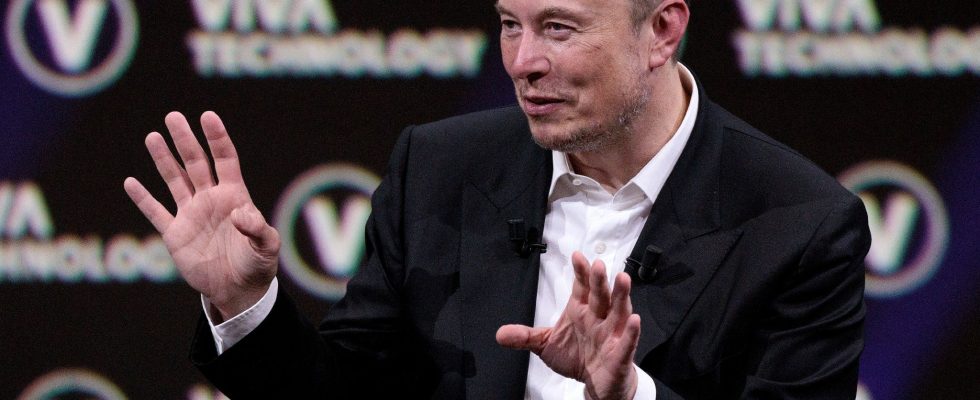But how does he do it? How does Elon Musk have revolutionized so many scattered sectors? Known for Tesla and SpaceX, Musk has also developed companies in software (PayPal), public transport (Hyperloop), energy (SolarCity), artificial intelligence (he is the co-founder of OpenAI), neuroscience with his creepy Neuralink project, and even public works (The Boring Company tunnels). And that without mentioning Twitter, now X, which we do not know for the moment if it is a Schumpeterian destruction or a chaotic tearing to pieces. The answer is to be found in the polymatyor in-depth knowledge of a wide variety of subjects.
The enviable category of polymaths is well represented in tech and science. Without even going back to the most extreme of them like Leonardo da Vinci, Descartes or Benjamin Franklin, we can take a contemporary example with Bill Gates, whose deep understanding of multiple disciplines has enabled his foundation to intervene in a multitude of fields. The Bill & Melinda Gates Foundation is interested in biology to fight against tropical diseases, next-generation nuclear energy, or even climate change. Half a generation further, we find Demis Hassabis, creator of DeepMind, Google’s artificial intelligence subsidiary, capable of understanding molecular biology as much as weather forecasting, nuclear fusion, or revisiting thermodynamics to reduce consumption. electric.
How do they manage to be experts in everything? Are their methods empirical, or the result of an elaborate process? These questions are as much a matter of research as of classical observation. On the academic side, we can delve into an interesting paper entitled Multiple giftedness in adults: the case of polymaths, which is a fair amount on the subject. More accessible is the exegesis of a contribution by Musk on the Reddit platform dating back ten years, but which remains relevant. She was compiled by Ruchir Jajooan Indian entrepreneur with a passion for innovation and philosophy.
From all this we can draw some lessons. First, all current polymaths have in common an extraordinary ability to absorb information coupled with a tremendous diversity. Bill Gates isolates himself several times a year with a pile of books, as chronicled in the excellent documentary from Netflix, Inside Bill’s Brain. Musk has long been a compulsive reader too, aided by Asperger’s Syndrome and a 90-hour-a-week schedule.
The corollary of the above is an exceptional capacity for deepening. What is striking about Elon Musk is the incredible granularity of his knowledge. Those who have worked with him speak of his memorization of every component in Tesla cars. It is enough, moreover, to look at the three hours of its guided tour from the Texas Starbase where its giant Starship rockets are made – an exercise reserved only for seriously ill “space geeks” – to measure its ability to jump from general to specific. Musk not only knows every piece of his rockets, but also all the science behind the design of a stabilizer or the turbopump of an engine: metallurgy, fluid mechanics, thermodynamics, aerodynamics.
To the prism of this tech guru, this gives the following axiom: “I think that most people can learn a lot more than they think. They limit their ability to learn. A word of advice: it is important to consider knowledge as a sort of semantic tree. Make sure you understand the fundamental principles, i.e. the trunk, then the main branches, before looking at the leaves, the details, which only hold by the rest”. Dissected by entrepreneur-philosopher Ruchir Jao, this gives: “Making bread according to Elon does not mean mixing flour, yeast and water, but having integrated the 23 components of bread, from the fermentation of yeasts to the cultivation of wheat .”
Brilliant minds
Other entrepreneurs translate this into knowing how to build things. “We hired a wonderful engineer because he had built a complete helicopter in his garage, certified as such. He had made every part, he knew every component of his machine”, told me one day Astro Teller, the boss of Google X, the futuristic projects branch of Alphabet. Identical posture with Hélène Huby, founder of The Space Exploration Company who aims to build a mini-orbital station: “I mainly take engineers who have tried their hand at building a rocket. It is essential to have rubbed shoulders with practice”, she says.
The third lesson concerns the implementation of what is now a discipline in its own right in artificial intelligence, the “transfer learning“. To simplify, it consists in applying a learning, an in-depth knowledge acquired in one field, to a multitude of others. This connection is an essential element in creativity as much as in execution. An example? Steve Jobs, whose learning calligraphy greatly influenced the design of Apple products and shaped its perfectionism. Or Jeff Bezos, whose knowledge of “Quants” – the quantitative analysis of finance – was essential when he designed the foundations of the Amazon software.
In the end, the analysis of the traits common to all these brilliant minds debunks the idea that ultra-specialization is necessarily a guarantee of success. It is better to favor the expert-generalist, or the multi-talented geek, as opposed to the monochrome genius whose mental space is similar to a canyon that constrains reasoning. Such is the condition of creativity, the transformation of which into success presupposes an implacable discipline in the execution.
